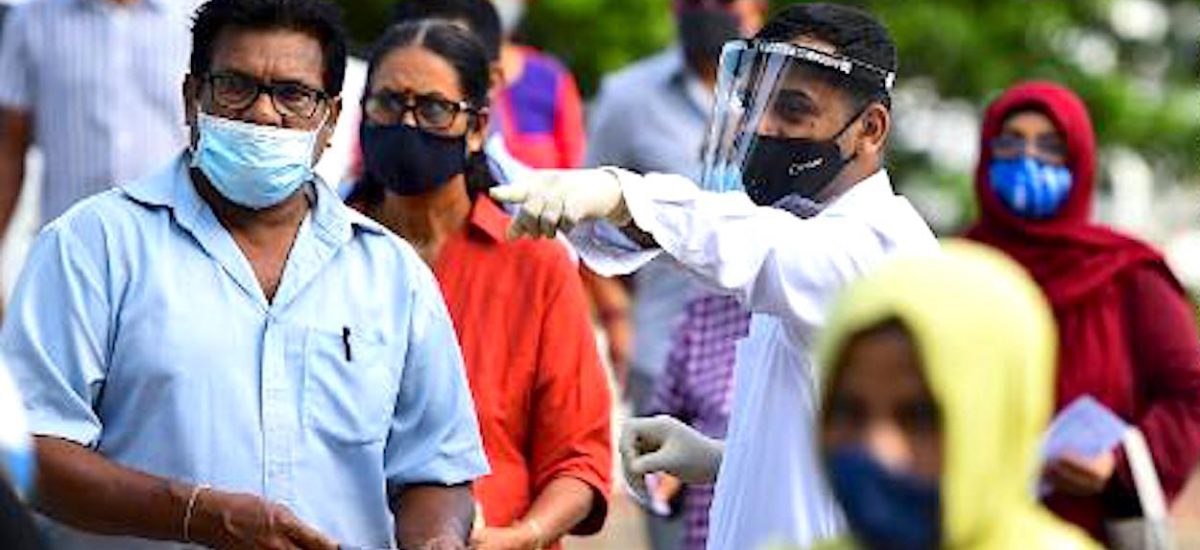Photo courtesy of CNN
Today is World Mental Health Day
Fear, isolation, depression, anxiety, financial worries and domestic tension due to the Covid-19 pandemic are some of the factors taking a serious toll on mental health in countries around the world.
Researchers have found that there were an estimated 76 million extra cases of anxiety and 53 million extra cases of major depressive disorder caused by Covid-19 with women and young people more likely to be affected than men or older people.
The research team found that there were 246 million cases of major depressive disorder and 374 million cases of anxiety disorders worldwide in 2020, 28% higher and 26% higher respectively than if the crisis had not happened.
About two-thirds of the extra cases of major depressive disorder and 68% of the extra cases of anxiety disorders were among women, while younger people were affected more than older adults, with extra cases greatest among people aged 20 to 24.
Women had more responsibilities to bear such as caring for the sick, doing household chores and looking after children not going to school and were financially more disadvantaged than men while young people had been prevented from meeting their friends and going to school, the study found.
In Sri Lanka, nearly two years of lockdowns and isolation have left many people in a fragile mental state. A woman in Awissawella murdered her abusive husband who assaulted her while drunk, clubbing him to death when he was sleeping while Jaffna, a woman attacked and killed her alcoholic husband.
National Institute of Mental Health (NIMH) Consultant Psychiatrist Dr. Sajeewana Amarasingha said in a newspaper interview that, “Our brains, minds and bodies are connected, so any feelings of fear can have mental as well as physical symptoms. This includes increased heart rate, shivering, rapid breathing, breathing difficulties, and sweating.”
The physical symptoms caused by fear such as breathing difficulties could make people believe they have contracted Covid-19, which makes them constantly seek medical advice or get tested.
There is an excessive fear about contracting the virus and of being sent to distant quarantine centers. Many people are anxious about lost livelihoods and incomes. Misinformation has caused trepidation among young people who are refusing to take the vaccine. Some people experience long Covid with symptoms such as fatigue that cause them to feel afraid. The inability to carry out funeral rituals that help to deal with grief also has a negative impact on mental health.
Close confinement for long periods caused increased Domestic Violence (DV) and family tension. There was an increase in the number of calls made to the 24 hour 1938 national women’s hotline and other helplines. “This number may not fully reflect the extent of the problem as many women are not aware of the hotline services, are unable to make a call, or don’t make the call for various reasons,” according to a report by UNFPA.
Psychiatrist Dr. Shehan Williams answered questions on the effect of Covid-19 on mental health.
Every infection has effects on mental and physical health. Viral infections through direct biological pathways cause depression, anxiety and even psychosis. The effects can come on even during the recovery phase. What is now recognized as the long covid syndrome where people have ongoing symptoms even after 12 weeks of the infection certainly has a significant psychological component. In addition to symptoms such as breathlessness, muscle pains and headaches, people have reduced attention and confusion, known as brain fog, and anxiety.
What particular challenges do people who are already mentally fragile face due to Covid-19?
People who have pre-existing mental conditions can have a relapse. The lockdowns and social distancing can isolate people with mental conditions, result in loss of employment, reduce access to psychological and psychiatric care.
At the beginning of the pandemic in Sri Lanka, people with Covid faced a lot of stigma and ostracization. How do you think this would have affected their mental health?
People who were most vulnerable but had to continue to work due to economic necessity were the ones most exposed to the infection. Despite propping up the economy of the country it was tragic that they were ostracized when they got the infection. It would have certainly isolated them further and caused anxiety even in their family members.
The Muslim community was singled out as bearers of Covid and stigmatized. What is the effect of this?
The misinformation that spreads particularly in crises situations is dangerous. With social media such misinformation spreads fast and people love feeding into sensationalisation at the expense of others. Such information is reinforced by likeminded groups with prejudices. The information is magnified in what is known as echo chambers where others with similar views congregate. The critical and rational approach to information is lost due to hype and emotion.
What particular challenges do the elderly face, especially dementia patients?
The elderly folk and those with dementia have been most vulnerable to serious illness and death. The statistics clearly show this. Social isolation, lack of contact with family and friends, difficulties in accessing healthy food and medicine, having regular outings or exercise and even proper care affects them profoundly.
How are teenagers impacted by long lockdowns and isolation from their friends?
A whole generation of young people lost out on going to school or socializing with their peers face to face for nearly two years. Their closest ally became the smart device in front of them, opening vistas in the internet to communicate, socialize and acquire information – both good and bad. They lost out on sports, group activities and social learning. Internet and gaming addiction has increased. The effects of these changes on the development of the adolescent brain will impact on them for the rest of their lives.
Is there a difference in how men and women have been mentally affected?
I don’t think Covid-19 respects gender. Everyone is equally affected. However, females have more propensity to anxiety and depression.
Lockdowns have seen a rise in domestic violence and child abuse. What changes in a person’s mental state causes them to commit acts of violence?
Frustration and confinement lead to interpersonal conflicts that eventually spill out as domestic conflict and violence. However these behaviors cannot be condoned and the underlying depravity of certain individuals that contribute to these acts have to be dealt with.
How can a balance be struck between protecting people’s physical health by having lockdowns and allowing them out of their homes to maintain their mental health?
This is certainly a challenge. But people should be aware of the effects of boredom and neglecting their physical and mental health. Even during lockdown people should find ways of exercising in their homes or in safe spaces. Structure their day and have family time. See it as a time to communicate positively, engage in mentally stimulating activities with their families and strengthen bonds and help each other have growth.


